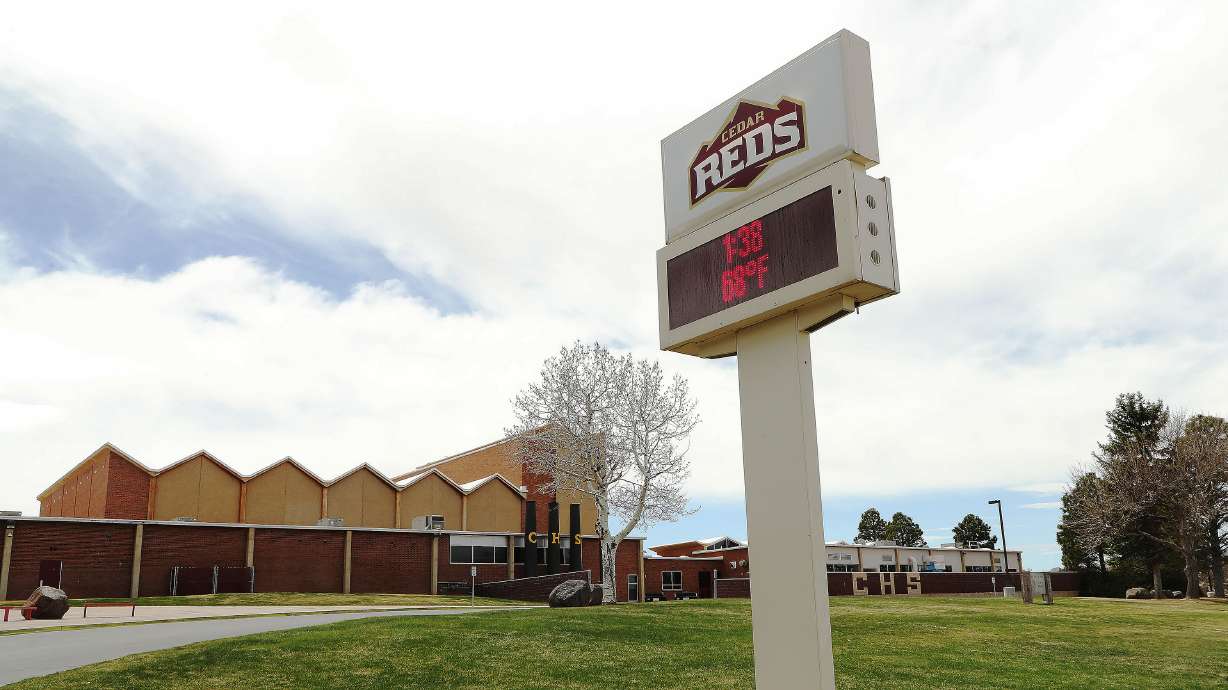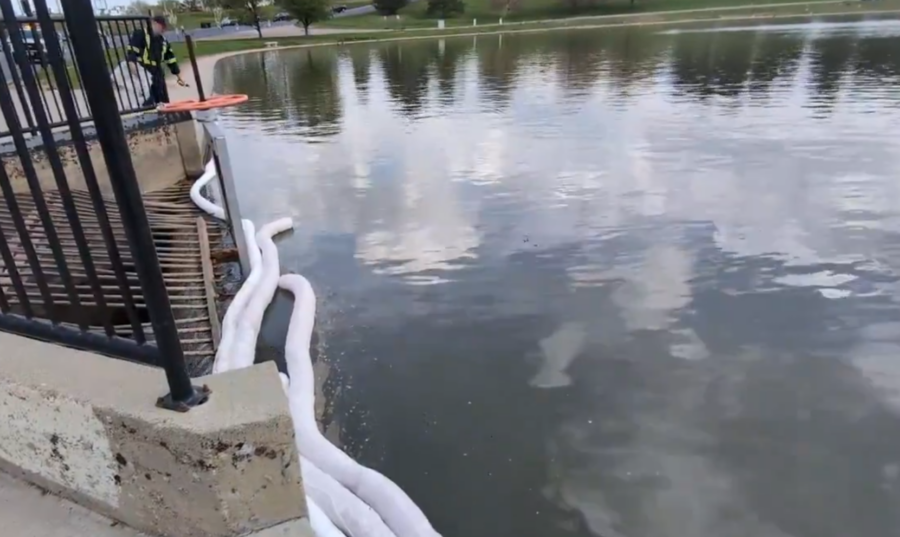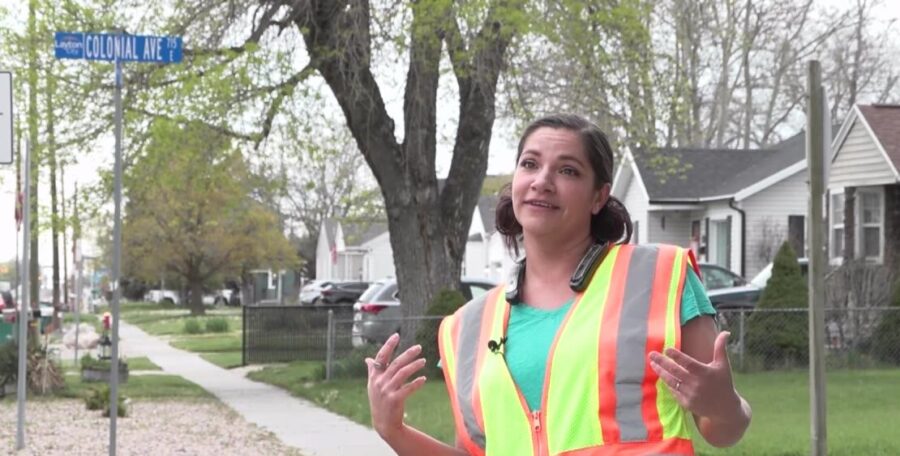Utah-Based Water Treatment Company Kills Toxic Algal Bloom In Utah Lake
Sep 2, 2020, 4:48 PM | Updated: 9:13 pm
LINDON, Utah – A Utah-based water treatment company this summer is showing that it can significantly reduce toxic algal blooms in Utah Lake. The head of the company shared their promising results at Lindon Marina on Wednesday, and they will present their data from the pilot program to state scientists later this month.
“This is a real issue for the state, and it’s something we can address,” said Richard Allred, CEO of ATS.
ATS is a water treatment company based in Midvale, started by Allred’s father 41 years ago. He said they use innovative technologies to come up with solutions for water problems in agriculture, mining, water treatment plants and now, algal blooms.
Each of the last five summers, toxic blue-green algal blooms containing cyanobacteria have plagued Utah Lake and other bodies of water in the state. But, at Lindon Marina, the Midvale-based company has shown it can kill the cyanobacteria toxin present in the annual algae blooms.
“This is something that works,” said Allred, who has been coming to the Lindon Marina since he was a kid.
“It’s going to be huge for the economy, for recreation, and make the lake usable,” he said.
His team started spraying the surface of the water in the marina with a copper sulfate solution on July 6, and repeated the treatment every two weeks. Within days, Allred and others at the marina noticed the water was cleaner. From the first application through the first weeks of August, ATS reported visible improvements in the condition of the marina’s water quality. Drone footage, taken August 7, shows a stark contrast between the water inside the marina and out.
“We knew we had a solution,” said Allred. “We can make the water better for recreation, which is better for business. But, it’s also safer for anybody that lives close enough to the lake or the Jordan River where the wind blows off of those.”
At the beginning of the project, the ATS team believed that the chemical treatment would not do any harm to the water. But, they did not expect the growth of healthy algae that occurred would be so robust. So, not only did they get rid of the bad algae, but they also helped the overall health of the lake in the area being studied. Allred said that is significant, and something that cannot be modeled using a bench test.
“Some of those fears that people have with environmental issues — we’re going to show that they are unfounded and that we can treat not only the whole of Utah Lake, but some of the other bodies of water within the state,” Allred said.
Later this month, ATS will present the results of the pilot program to scientists at the Utah Division of Water Quality.
Jared Mendenhall, a spokesperson with the Utah Department of Environmental Quality gave this statement Wednesday:
“This type of treatment has the potential to provide short-term remediation especially for some trouble spots around Utah Lake. The scientists at Utah DEQ’s Division of Water Quality will continue to monitor the effectiveness and water quality impacts of treatment on the Utah Lake ecosystem. DEQ continues to focus on efforts to reduce the frequency and magnitude of harmful algal blooms over the long-term.”
As the blue-green algae grew in 2019, the Utah State Legislature appropriated $500,000 for the treatment program as part of an ongoing water quality study.
Allred said it would cost $1.5 million to treat Utah Lake each summer, which he said may sound like a lot of money.
“But, it’s a lot less expensive than a dead lake that we have to deal with, and it’s way less expensive than some of the health concerns,” he said.
As a person who has enjoyed boating on the lake with his family for many years, the project is one that he pursued.
“We are getting to do good for people, and it’s fun to know that we have solutions that make a real difference. They don’t do harm, and we’re going to be able to demonstrate that,” said Allred.
ATS has seen similar success in smaller bodies of water in Utah, and elsewhere in the world.











